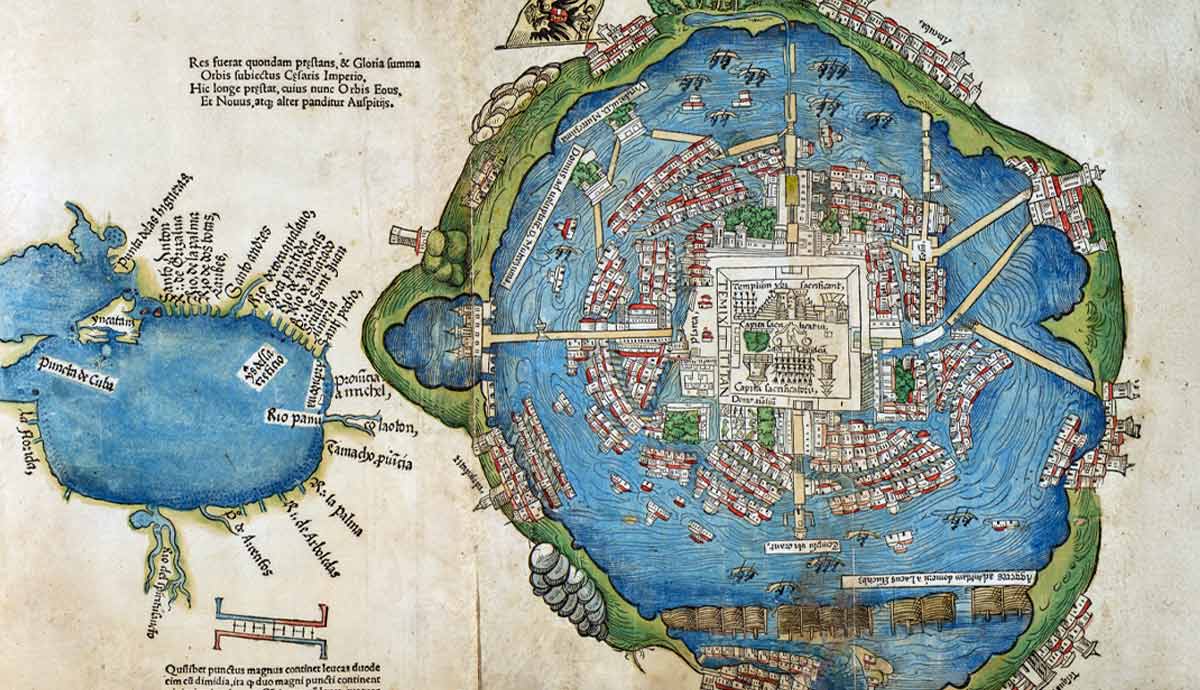
German philosopher Friedrich Nietzsche is one of the most significant philosophers of the 19th century. He wrote about a huge range of topics, including truth, morality, history, cultural aesthetics, and language. As such, excerpts of his published works have become well-known sayings that have survived throughout the centuries. Here are just eight of the most memorable and profound Friedrich Nietzsche quotes and the meanings behind them.
1. “God Is Dead, and We Have Killed Him.”

One of Friedrich Nietzsche’s most famous quotes concerns religion and the development of a secular society in Europe. “God is dead, and we have killed him,” is one of Friedrich Nietzsche’s most provocative claims. He wrote it in the book Thus Spoke Zarathustra, which is an eccentric and difficult work.
Nietzsche intended the quote to offer an assessment of the changes going on in European society at the time. Europe was experiencing a cultural shift away from traditional religious beliefs, particularly those rooted in Christianity. Science, reason, and secularism were gaining prominence, and people were questioning the validity of religious dogmas and metaphysical claims. Nietzsche observed that the traditional religious worldview, which had long served as a foundation for moral values and meaning, was losing its influence in the modern world.
Nietzsche was criticizing, in particular, the Protestant focus on faith alone, as he believed that Jesus’ legacy was essentially a practice. This led him to say in the same text, “In truth, there was only one Christian, and he died on the cross.”
When Nietzsche claims “God is dead,” he does not mean a literal death of a divine being. Instead, this saying symbolizes the collapse of the traditional religious framework in the consciousness of the modern individual and the wider society.
2. “And Those Who Were Seen Dancing Were Thought to Be Insane…”

“And those who were seen dancing were thought to be insane by those who could not hear the music,” is a quote which comes from The Gay Science, one of Nietzsche’s most famous works. The science in question here is poetry. The phrase which The Gay Science takes as its title refers to an old Provencal expression, which Nietzsche references explicitly. Here, poetry is taken as an ethical way of being. The quote we are addressing here extends the metaphor of poetry into a way of living more generally.
To be more specific, this quote suggests that some people, due to their limited perspectives or adherence to societal norms, might not be able to comprehend the profound beauty and authenticity of those who live life passionately and authentically.
Nietzsche argues that those who dance to their own music have embraced their inner passions and desires to the fullest extent. Although they may be misunderstood or judged by others who lack the ability to perceive the depth and beauty of such individuality, Nietzsche nonetheless defends this way of living thoroughly. This can be partnered with his quote in the same text, “We should consider every day lost on which we have not danced at least once.”
3. “To Live Is to Suffer, to Survive Is to Find Some Meaning in the Suffering.”

This quote has two parts, and makes two claims about the nature of life in general. On the one hand, it encapsulates the reality that suffering is an inherent and inevitable part of human existence. In other words, it asks us not to attempt to escape from suffering. It acknowledges that life is not free from pain, hardships, and challenges, and asserts that no life could ever be immune from these things. Often, we think that a good life is one in which we minimize suffering. However true this may be, Nietzsche wants us to recognize that we all encounter moments of suffering and adversity throughout our lives, and that it is delusional to think we could avoid this.
The second part of the quote consoles us that, although suffering is quite literally unavoidable as a human being, that does not simply mean that our lives are poorer for that. Indeed, in light of the inevitability of suffering, Nietzsche counsels that the meaning of our lives is to be found in how we respond to it.
4. “That Which Does Not Kill Us Makes Us Stronger.”

In a similar vein to the previous quote, Nietzsche now goes even further in claiming that survival is not only the means by which we can find purpose in our lives, but that survival is always a strength. In other words, our ability to withstand the suffering which is an inevitable part of life is not simply a question of finding meaning in it. Rather, our ability to withstand suffering is developed by prior suffering. Life is all about learning how to evolve our survival strategies, not to shirk our responsibilities and avoid painful inevitabilities.
The quote “that which does not kill us makes us stronger,” encapsulates Nietzsche’s view that the best kind of life is one which faces realities head-on. It also expresses his belief that the best kind of individual is one who is resilient in spite of adversity. However, we should note that the full quote, found in Nietzsche’s Twilight of the Idols (1888) as aphorism eight, was phrased differently: “From the military school of life: That which does not kill me makes me stronger.”
5. “And if you gaze long into an abyss, the abyss also gazes into you.”

This quote comes from Nietzsche’s Beyond Good and Evil. The full quote reads, “He who fights with monsters might take care lest he thereby become a monster. And if you gaze for long into an abyss, the abyss gazes also into you.” He is suggesting that if you spend too much time contemplating dark and negative things, because those things can start to grow within you. The abyss represents a deep, unknowable void, symbolizing something that can be overwhelming or destructive if looked at too closely.
In a contrasting quote, Nietzsche said, “A good writer possesses not only his own spirit but also the spirit of his friends.” With this quote, he was suggesting that a good writer prefers to be understood than admired.
6. “Every deep thinker is more afraid of being understood than of being misunderstood.”

With this quote, which also appears in Beyond Good and Evil, Nietzsche suggests that someone who thinks deeply about complex ideas often fears that if others fully grasp their thoughts, it might diminish the depth and nuance of their ideas, as if simplifying them to a common level, making them less impactful. Therefore, deep intellectual thought can be a kind of intellectual vanity.
This was part of Nietzsche’s critique of philosophy and philosophers, despite being considered a philosopher himself.
7. “The essence of all beautiful art, all great art, is gratitude.”

This quote appears in Nietzsche’s epilogue to The Case of Wagner, in which he explores his relationship with the composer Richard Wagner. Nietzsche believed that beautiful objects inspire feelings of gratitude in artists, which motivates them to create art that celebrates those objects.
Nietzsche also believed that art elevates life beyond survival by creating meaning and beauty. He thought that art allows people to express their creativity and confront life’s chaos, giving existence purpose and depth.
8. “The secret to harvesting the greatest fruitfulness and the greatest enjoyment from existence is to live dangerously!”

In another quote from The Gay Science, and he follows it up with the admonition to, “Build your cities on the slopes of Vesuvius! Send your ships into uncharted seas! Live at war with your peers and yourselves!”
This bold statement encapsulates many of the most important aspects of Nietzsche’s philosophy. It is by embracing risk, challenge, and adversity that we create a fulfilling and meaningful life. Nietzsche emphasizes the importance of pushing beyond the confines of comfort and safety to truly experience the richness of existence.










